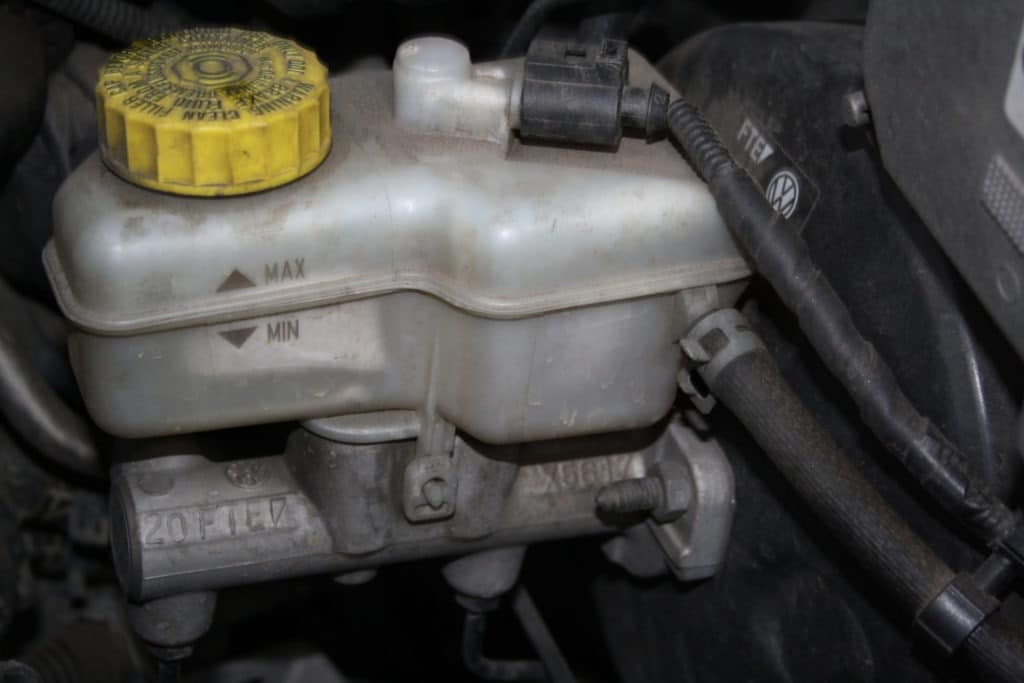When it comes to going fast, brakes only slow you down, so who needs them! Brakes are a crucial component of every car and motorized vehicle out there. They allow the operator to decrease speed so you can come to a complete stop. The braking system begins when you press the brake peddle, hydraulic fluid is pushed from the master cylinder into the calipers. This forces a piston on the caliper to extend. At the end of the piston are brake pads. They then come in contact with the rotor slowing down the vehicle. If you have ever experienced Driving with non-functioning or limited brakes, you know how scary it is, especially at high speeds. When it comes to a failed brake caliper, there are a variety of issues that could be present in your vehicle. But what are the symptoms of a bad brake caliper? Well, you are in luck! Below we have compiled a list of common symptoms of bad brake caliper to help you identify and find a solution so you can get back on the road.
Car Pulls To One Side
When you are driving, and you hit the brakes, do you noticed the car pulling to either side? This is a very common symptom of a failed caliper. The reason this occurs is when the calipers engage. Both sides are supposed to squeeze the brake pads to the rotors equally. But if one caliper is failing, it will squeeze less or not at all, resulting in the car pulling to the left or right when braking. This can be very dangerous if you have to brake at high speeds or on icy roads.
Brake Fluid Around The Calipers.
If you discover brake fluid on or around your caliper, it is a strong indication of a failed caliper. Fortunately, this could be as simple as a loose-fitting. Ensure the connection from the brake line to the caliper is secure. Make sure you use a flare nut wrench as not to round off the heads on the brake line. If the lines are secure, it could be something more serious such as an internal seal in the caliper gone bad. If a seal has gone bad, this would require a replacement or rebuild of the caliper.
Squealing Or Other Nasty Sounds When Braking
A high pitched squealing sound coming from the wheel area is a telltale sign of a bad brake caliper. The squealing noise you are hearing is the caliper extending, thus allowing the brake pads to make contact with the rotor. But in this case, they are not releasing when braking is complete. Essentially you are driving through your brakes. This is very hard on your car and should be serviced by a mechanic as soon as possible. On the bright side, some car brake pads are designed to make a high pitch squealing noise when the brake bads are in need of replacement, so there is a chance it may not be your caliper. Either way, a mechanic should inspect the vehicle.
Uneven Brake Pad Wear
If you have some basic mechanical knowledge, an easy way to diagnose a bad brake caliper is by inspecting the brake pads. To get access to the brake pads varies from vehicle to vehicle but is the same process for all. Remove the tire to get access to the caliper. Next, there typically are two bolts holding the caliper to the bracket. Once these bolts are removed, try to leave the brake line connected, so you don’t have to bleed the braking system. Then remove the brake pads from the caliper. The brake pads are held in by small metal clips. Some calipers also have pins holding the pads in place. Once you have the brake pads out, compare the two pads for uneven wear. It should be evident if they are wearing uneven.
No Hydraulic Fluid In The Master Cylinder

While not necessarily a part of the caliper but still a crucial part of the braking system. Not having fluid in the master cylinder will stop your calipers from functioning correctly. The Master cylinder contains hydraulic fluid that allows the calipers pistons to open and close. Not having any fluid in the master cylinder will not allow the calipers to close; therefore, not giving any braking power. Having below the recommended amount of brake fluid in the master cylinder will make braking much harder, resulting in you having to push the brake pedal harder and further. To check your brake fluid, open the hood and look to the firewall (the part that separates the cabin from the engine bay) and look on the driver’s side for a reservoir as pictured above this is the master cylinder. Inspect the fluid level. There are lines marked on the reservoir that indicate how full it should be if the level is within the acceptable range, disregard. If the level is low, refer to your owner’s manual for what type of brake fluid your vehicle takes. Continuously monitor the level of the reservoir to see if it goes down. This will identify if you have a leak. A leak can be a severe problem if it is a brake line. Consider taking it to a mechanic. It could also be as simple as a loose-fitting. Go around all four corners and tighten all connections.
If you notice any of these symptoms of bad brake caliper in your vehicle, it may be time for a new caliper or an all-around brake job. Although most of the time, you will be fine with just replacing the suspect caliper. A replacement caliper price varies widely from vehicle to vehicle. Most smaller non-performance cars are somewhere in the $50 -$150 range for just the caliper. Try not to push this issue to the side. A failing caliper is a safety issue for yourself, and other drivers get it serviced as soon as you can.

